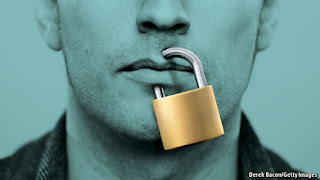Making the Most Out of Other People’s Misery This is Sam McGlennon. Lets’ face it, he looks like a nice guy: honest, decent, well educated, undoubtedly with good intentions. Maybe that’s how he managed to land the ideal job. He describes himself as a “ climate risk and resilience advisor, as well as a sustainable supply chain expert, for NZ businesses and governments”. Sounds very cool, very now. I mean, advising governments , plural. Wow. Of course this might not be a real job. I mean, I write stuff, and it’s just possible that people from businesses and governments read it, so I guess I could say I advise businesses and governments. But cynicism aside, the best part of Sam’s job, what makes it ideal, is that he gets to take smug satisfaction out of the misery of millions of people who have lost their jobs and whose businesses have gone bust. How cool is that! You see Sam is a New Zealand greenie, but he represents the views of many environmentalists around the wo...
Popular posts from this blog
The Bland, Banal Boredom of Woke Culture Most people criticise woke culture for shutting down free speech, for cancelling, for hypocrisy: we are allowed to be as horrible as we like to you, but don't you dare even think about discussing our beliefs, our identity . But the truly terrible effect of woke culture is the staggering boredom it creates by blandifying everything. " I' m bored; you’re bored; we’re all bored. By our books and movies and television shows, the endless blandness of the Netflix queue, by our music and theater and art. Culture now is strenuously cautious, nervously polite, earnestly worthy, ploddingly obvious, and above all, dismally predictable." In this fascinating article William Deresiewicz explores the origins of wokeness in the arts, and what we have lost in the process.
How to Shut Down the World
On 17 May 2013, then-President Barack Obama tweeted “Ninety-seven percent of scientists agree: #climate change is real, man-made and dangerous.” This is the moment the climate debate changed. With one tweet Obama cast climate change sceptics as looney outsiders, akin to flat-earthers and believers in ancient aliens. They became deniers . Let’s face it: there comes a point when it is simply unreasonable to be sceptical. If tough policy decisions on economic development, the environment and public safety need to be made, it is simply irresponsible to pay attention to fringe beliefs, no matter how poignant references to Galileo battling the world view of the seventeenth century might be. Steven Novella, a clinical neurologist at Yale, discusses the distinction between deniers and sceptics in detail. He argues that in situations where “ you yourself lack appropriate expertise” then “deference should be t...



Comments
Post a Comment